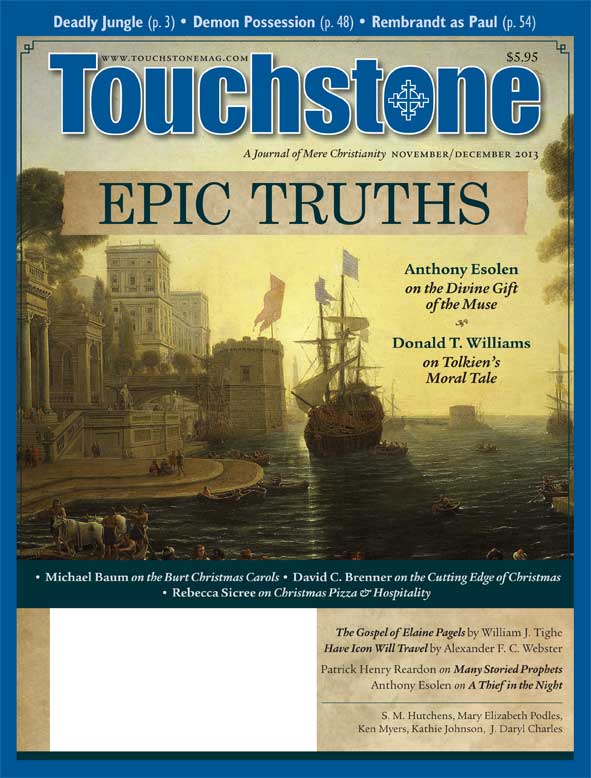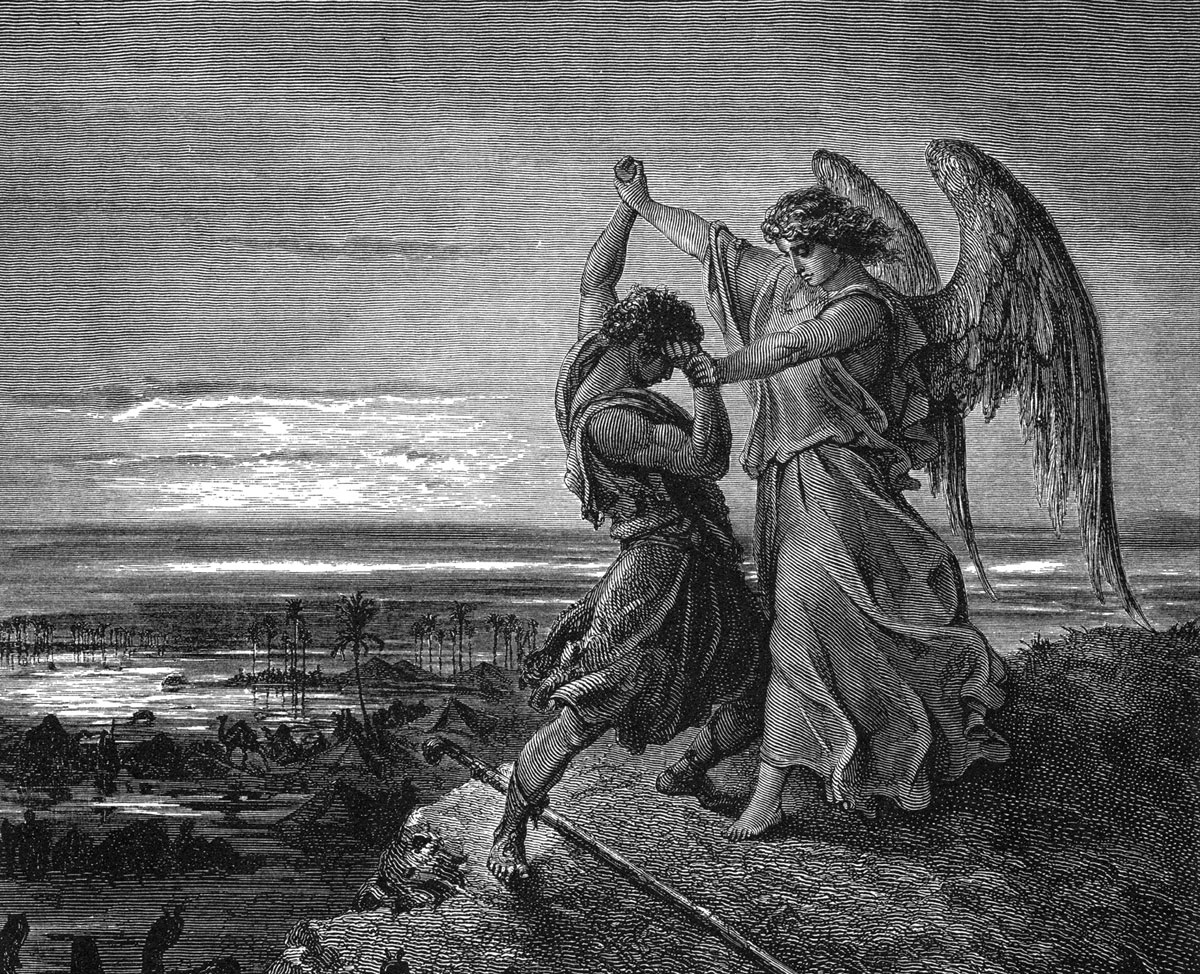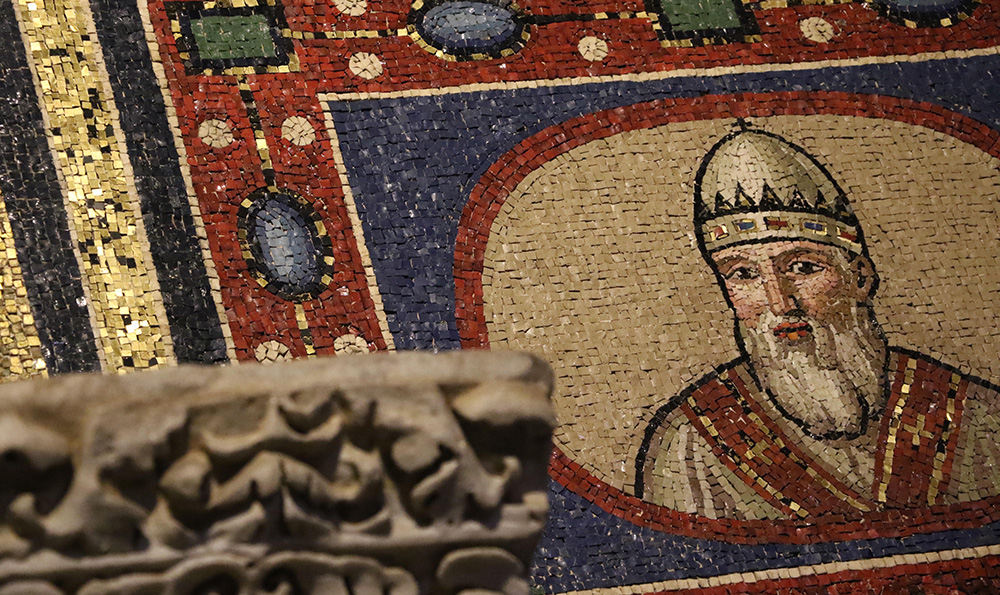Contours of Culture
On Earth As It Is in Heaven
by Ken Myers
For most of my adult life, I've been trying to understand why it is so easy for American Christians to compartmentalize their faith, keeping piety and spirituality separate from matters of culture and the practices of life in the body. I knew that Gnosticism was an early heresy—that very early, under the influence of Greek forms of dualism, the Church was infected with suspicion about the material world.
That suspicion has continued to haunt the intuitions of Christians, and has repeatedly nurtured an etherealized and sometimes wholly otherworldly faith, according to which salvation has interior and eternal consequences but need not make a significant difference in life here and now. So, when in 2002 I read an essay by theologian David Schindler about dualism in American Christianity, I underlined this sentence enthusiastically:
Christians have been careful watchdogs of morality and inner-churchly piety even as they have largely given away the orders of space, time, matter, and motion, and indeed the entire realm of the body and bodiliness, and of the artifacts and institutions in and through which space, time, matter, and motion become human culture.
As did sociologist Craig Gay in his book The Way of the (Modern) World (discussed in this column in March/April 2012), Schindler insisted that most Americans—even most American Christians—are practical atheists. Schindler prophetically declared that "the disappearance or indeed the death of God is a phenomenon occurring not only in the 8 percent of Americans who do not profess belief in God but also and more pertinently in the 92 percent who do." God is effectively dead, he argued, because "American Christianity has been driven by a dualism that undergirds a conception of salvation as individualistic and, as it were, world-less."
A Squabble Among Siblings
Salvation is world-less for most American Christians because the world is assumed to be inherently meaningless and mechanistic, if not downright evil, as it was for ancient Gnostics. The natural and the supernatural have no essential relationship. American Christians, for the most part, are not confident that all of Creation lives and moves and has its being in God, that God is not far from or extrinsic to the stuff of this world.
And so, Schindler warned, it is a very short step from a religion that claims a radical separation between the natural and the supernatural to a politicized and fanatical secularism that shares this assumption. "Why should we be surprised if Americans today are disposed increasingly to dismiss religion with its attendant morality as arbitrary and irrelevant, when religion in its dominant American-Christian form has defined itself as irrelevant?" The battle between the religious Right and the atheist Left is, it turns out, a squabble among siblings.
Liberal theology has tried to sustain concern for earthly matters by reducing theology to anthropology—by making the gospel into an anthropocentric program of self-improvement. The entire liberal project has tended to eliminate dualism by insisting on an earthbound monism, and Schindler suggests that the dualistic theology of much of modern Christianity has paved the way for that strategy.
Christocentric Creation
Throughout the twentieth century, various theologians have argued that the way to escape this modern practical atheism is to return to the premodern Church's understanding of Creation as a Christ-ordered and divinely animated reality. Creation is a Christocentric reality, not "neutral" and hence open to whatever meaning we care to project on it. It is in Christ that all things hold together; the coherence that makes it a Creation is the ordering presence of the Logos.
Ken Myers is the host and producer of the Mars Hill Audio Journal. Formerly an arts editor with National Public Radio, he also serves as music director at All Saints Anglican Church in Ivy, Virginia. He is a contributing editor for Touchstone.
subscription options
Order
Print/Online Subscription

Get six issues (one year) of Touchstone PLUS full online access including pdf downloads for only $39.95. That's only $3.34 per month!
Order
Online Only
Subscription

Get a one-year full-access subscription to the Touchstone online archives for only $19.95. That's only $1.66 per month!
bulk subscriptions
Order Touchstone subscriptions in bulk and save $10 per sub! Each subscription includes 6 issues of Touchstone plus full online access to touchstonemag.com—including archives, videos, and pdf downloads of recent issues for only $29.95 each! Great for churches or study groups.
Transactions will be processed on a secure server.
more from the online archives
calling all readers
Please Donate
"There are magazines worth reading but few worth saving . . . Touchstone is just such a magazine."
—Alice von Hildebrand
"Here we do not concede one square millimeter of territory to falsehood, folly, contemporary sentimentality, or fashion. We speak the truth, and let God be our judge. . . . Touchstone is the one committedly Christian conservative journal."
—Anthony Esolen, Touchstone senior editor










